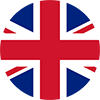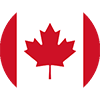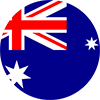Tips to Steer Clear From Your Dentist Today
As society continues to walk down a path uncharted, many of our faithful customers have had to miss out on critical dental care. Oral care not only encompasses our teeth and gums but also helps to support overall health and wellness.
Sometimes a dentist is the first to alert patients to other medical issues they are facing in life. Missing out on those appointments can be stressful or incite anxiety, but you can continue to have good dental health at home during this time of uncertainty.
At Brio, we are not Physicians or Dental Professionals nor do we claim to give medical advice, but we do have a few tips that we have come up with to make sure your next trip to the dentist doesn’t keep you in the chair longer than necessary.
From a young age we have all heard the typical requests from hygienists, dental assistants and dentists themselves; brush twice a day, floss daily and avoid sugary or acidic drinks… but in a time when our diets may not be as consistent and our dining and drinking habits have changed, it’s a good time to give a few extra tips that may promote better oral health.
First, water.
It seems like often that is the cure all for everything, and dental health is no different. While it will not wash away a cavity, water does more than quench thirst.
In the US, most water is treated with fluoride. We all know that fluoride is a mineral that strengthens teeth. Our dentists use it in treatments in the office but the added fluoridation in water has been proven to increase strength in our teeth and help us to see less decay.
Water also aides in keeping your mouth clean by adding moisture and helping us to produce saliva. Often you hear of dentists mentioning dry mouth. This isn’t just an uncomfortable issue but dryness in your mouth is one reason that you may also have bad breath. Drinking water also helps to maintain fresh breath by washing away leftover food particles that may be caught in between your teeth or near your gums.
Next, limit snacks.
In today’s day and age, it seems that we may be reaching for snacks more than we should. It could be stress, boredom or even anxiety. As we journey into the unknown, many people are finding comfort in foods we may have avoided in years past and we would be remiss to note that its often easier to snack when in your home environment.
Eating full meals is good for a few reasons, but more saliva is produced when you eat full meals - so when we snack, there is a greater chance that we will have leftover food particles left between our teeth. This leaves us at a higher risk for dental cavities. We know that the idea of no snacks can be overwhelming to some and we also know that grabbing easily prepared foods seems to make us feel satiated quickly.
Instead, stop and reach for what is best for dental health and beyond.
- First, try water.
- If you are still hungry, choose snacks that are high in fiber, lower in carbohydrates and something that is crunchy and has limited sugars.
Not only will this decrease your risk of a crash it will also get your jaw working to help keep it in tip top shape.
Third, brush properly
...and by properly we want you to remember your tongue is a part of your mouth too!
Often, we find that people have always had a way of brushing and sometimes that can be harder than necessary. It's great to find a softer bristled brush for most but truly any brush that you use is the most important to have on hand. Try to brush your teeth in a circular pattern that not only gets the front and back surfaces but also take the time to reach all your tooth surfaces.
Don’t forget that it's not only important to brush your teeth, but to help remove plaque make sure you are brushing your gum lines as well. Be mindful of medium and hard bristled brushes especially if you are a vigorous brusher as this can damage both your gums and enamel.
Fourth, you may want to consider a mouthwash.
Mouthwashes are often underutilized especially by populations that could benefit greatly from them. While they must be chosen and used with care, mouthwashes can help protect overall oral health by helping to reduce acid, increasing the ability to remove food particles from hard to reach areas and by helping to re-mineralize or repair damaged areas of the teeth that are not yet cavities.
Good mouthwashes can be a great addition to an oral care routine especially for young children and older adults. It’s important however to speak to a dental professional as to what is best for your individual needs. During this time, while offices are closed outside of emergency, there are often staff still available to help you with a decision like this one and promote a better visit when the offices open once again.
Finally, don’t forget to change your brush heads.
This isn’t just for germs. Remembering exactly when you got your last toothbrush can be a challenge especially in a day like today when it feels like we are living Groundhog Day, the movie. Still, it's important to continue with healthy habits like this one.
Changing your toothbrush head isn’t just about germs but also about the ability to provide you the best brushing with the brush you have. Choosing to utilize a toothbrush head or brush longer can cause irritation or tooth damage due to frayed or damaged bristles. This in turn can damage your own teeth - something no one wants to worry about.
While we cannot change what is going on in our world today, we can give you a few tips to ease your anxiety about some little things in life so that they don’t become the big ones.
We believe having a healthy oral care routine will not only alleviate added stresses of emergency visits to the dentist’s office but will also protect the dental professionals who help to take care of us each and every day.




